

Participants
The speakers are arranged in alphabetical order.

Tianzhe BAO
University of Health and Rehabilitation Sciences
Dr. Tianzhe Bao pursued his Ph.D. at the University of Leeds, supervised by Dr. Zhi-Qiang Zhang and Prof. Shane Xie. He is now working as an assistant professor and also the principal investigator (PI) at the University of Health and Rehabilitation Sciences, China. His primary research interests include myoelectric control, wearable sensor system, rehabilitation robotics, etc., and has carried out in-depth exploration in the field of upper-limb motion estimation based on deep learning, So far, he has proposed a series of innovative deep learning structures and approaches, including hybrid deep neural network modeling method, deep network confidence prediction mechanism, and domain adaptive strategy, etc. Related works were published in IEEE J. Biomed. Health Inform., IEEE Trans. Hum. Mach. Syst., IEEE Trans. Neural Syst. Rehabil., IEEE Trans. Instrum. Meas. At present, he is invited to be the guest editor of the special issue of Front. Bioeng. Biotechnol (JCR Q1), and serves as the youth committee member of the Rehabilitation Engineering Branch of the Chinese Biomedical Engineering Society and the secretary of the Rehabilitation Engineering Committee of the Shandong Biomedical Engineering Society.
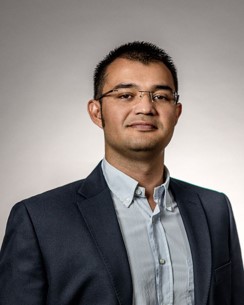
Max Ortiz CATALAN
Chalmers University of Technology
Prof. Max Ortiz Catalán, Ph.D., is the Founder and Director of the Center for Bionics and Pain Research (@CBPR.se) and the Professor of Bionics at Chalmers University of Technology, Sweden. He has received several honors for his work, notably the “Swedish Embedded Award” by the Swedish Electronic Association in 2018, the “Brian & Joyce Blatchford Award” by ISPO in 2017, the “Delsys Prize” by Delsys in 2016, and the “European Youth Award” by the European Council in 2014. His research includes bioelectric signals acquisition electronics (analog and digital); bioelectric signal processing and machine learning algorithms for decoding motor volition and control; neuromuscular interfaces; neurostimulation for sensory feedback; bone-anchored prostheses and osseointegration; and virtual and augmented reality for neuromuscular rehabilitation and the treatment of phantom limb pain.

Badong CHEN
Xi'an Jiaotong University
Badong Chen received the Ph.D. degree in Computer Science and Technology from Tsinghua University, Beijing, China, in 2008. He is currently a professor with the Institute of Artificial Intelligence and Robotics, Xi'an Jiaotong University, Xi'an, China. His research interests are in machine learning, artificial intelligence, brain computer interfaces and robotics. He has authored or coauthored over 300 articles in various journals and conference proceedings (with h-index 53), and has won the 2022 Outstanding Paper Award of IEEE TCDS. Dr. Chen serves as a Member of the Machine Learning for Signal Processing Technical Committee of the IEEE Signal Processing Society, and serves (or has served) as an Associate Editor for several international journals including IEEE TNNLS, IEEE TCDS, IEEE TCSVT, Neural Networks and Journal of The Franklin Institute. He has served as a PC or SPC Member for prestigious conferences including UAI, IJCAI and AAAI, and served as a General Co-Chair of 2022 IEEE International Workshop on Machine Learning for Signal Processing.
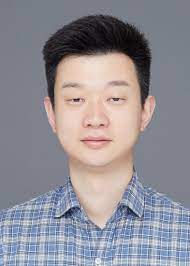
Xun CHEN
University of Science and Technology of China
Xun Chen is a full professor in the Deparment of Electronic Engineering and Information Science at the University of Science and Technology of China. He is serving as Department Head from 2019. His research interests include the broad areas of statistical signal processing and machine learning in biomedical applications. He has published over 180 scientific articles in prestigious IEEE/Elsevier journals, including IEEE TIM Andy Chi Best Paper Award, IOP CHINA TOP Cited Paper Award, Elsevier Highly Cited Research. He is an IEEE Senior Member. He is serving as Area Editor for Signal Processing-Image Communication, Associate Editor for IEEE TIM/SPL/OJSP and Frontiers in Neuroscience, and Editorial Board Member for Cognitive Neurodynamics and Journal of Neuroscience Methods. He received the support of National Science Fund for Excellent Young Scholars in 2019 and DAMO Academy Young Fellow in 2022.

Farina DARIO
Imperial College London
Professor Farina is the Chair in Neurorehabilitation Engineering at Imperial College London. His research focuses on biomedical signal processing, neurorehabilitation technology, and neural control of movement. Within these areas, he has (co)-authored approximately 400 papers in peer-reviewed Journals and >500 conference abstract and papers. He has been the President of the International Society of Electrophysiology and Kinesiology (ISEK) (2012-2014) and is currently the Editor-in-Chief of the official Journal of this Society, the Journal of Electromyography and Kinesiology. He is also currently an Editor for IEEE Transactions on Biomedical Engineering and the Journal of Physiology, and previously covered editorial roles in several other Journals.
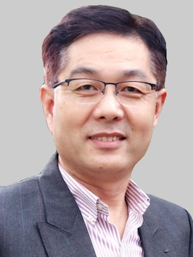
Cuntai GUAN
Nanyang Technological University
Professor Cuntai Guan is a President's Chair Professor in Computer Science and Engineering at Nanyang Technological University (NTU), Singapore. He is the Director of the Artificial Intelligence Research Institute of NTU, Co-Director, S-Lab for Advanced Intelligence, NTU, and Director of the Centre for Brain-Computing Research. His research interests are in the fields of Brain-Computer Interfaces (BCI), Machine Learning, Neural Signal & Image Processing, Rehabilitation, and Artificial Intelligence. He published 7 book chapters, 380 refereed journal and conference papers, and holds 25 granted patents and patent applications. He licensed 15 patents/technologies to five companies in Singapore and USA. He delivered more than 70 keynote speeches and invited talks. He is a recipient of the Annual BCI Research Award, the King Salman Award for Disability Research, the IES Prestigious Engineering Achievement Award, the Achiever of the Year (Research) Award, the Finalist of the President Technology Award. He is an elected Fellow of the Singapore Academy of Engineering, US National Academy of Inventors, IEEE, and AIMBE.
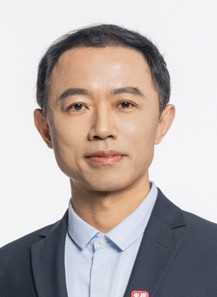
Bo HONG
Tsinghua University
Dr. Bo Hong received his Ph.D. degree of Biomedical Engineering from Tsinghua University in 2001. From 2004 to 2005, he was a visiting scientist in the Department of Biomedical Engineering and the Center for Neural Engineering at Johns Hopkins University, USA. He is now a tenured professor with Department of Biomedical Engineering, School of Medicine, Tsinghua University, and an investigator of McGovern Institute for Brain Research at Tsinghua. His main research interests are minimally invasive brain computer interface and language network in human brain. He has co-authored more than 80 papers on Nature Neuroscience, PNAS, Nature Communications, NeuroImage, Journal of Neuroscience etc. He has also been invited to give talks on IEEE Neural Engineering Conference, ARO midwinter annual meeting, BCI workshop of NIH Neural Interface Conference, etc. He is currently the Associate Editor of IEEE Transactions on Biomedical Engineering.
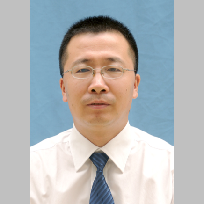
Li JIANG
Harbin Institute of Technology
哈尔滨工业大学教授,博士生导师。入选国家级高层次人才计划,“百千万人才工程”国家级人选。主要研究方向是生机电一体化机器人、机器人智能灵巧操作和医疗机器人等。主持国家重点研发计划项目、国家自然科学基金重点项目、国家973计划课题、国家863计划重点项目等。获国家技术发明二等奖2项和省部级科技奖励6项,出版学术专著3部,发表论文230多篇,授权和申请国家发明专利70余项。现担任中国宇航学会机器人专业委员会委员、中国仿真学会机器人系统仿真专业委员会副主任委员、中国康复医学会康复工程与产业促进专业委员会常务委员。

Jing JIN
East China University of Science and Technology
Jing Jin is currently a professor, Ph.D. supervisor, and serves as associate dean of the School of Mathematics and director of the Center for Intelligent Computing at East China University of Science and Technology. He has been selected into National High-Level Talents Special Support Plan, Shanghai Shuguang Program and Highly Cited Chinese Reseachers. Additionally, he is also the Distinguished Professor of Oriental Scholars of Shanghai Universities and the chief expert of Shanghai Academician (Expert) Workstation. Prof. Jin served as the ambassadar of the International BCI Award Foundation and the juror for the 2020 Early Career Award of the International BCI Society. He is also the deputy chairman of the Medical Neuroengineering Branch of the Chinese Society of Biomedical Engineering (CSBME), and the distinguished expert of the Chinese Association of Automation (CAA). He serves as the Associate Editor of Journal of Neuroscience Methods, Cognitive Neurodynamics, and Frontiers in Neurorobotics. He also serves as the Editorial Board Member of Neural Networks and Journal of Neural Engineering. He led a team to win the Second Class Prize of the Shanghai Natural Science Award and the Shanghai Worker's Pioneer Award. His research interests include brain-computer interface technology, brain signal processing and recognition, and intelligent rehabilitation robots. He has published more than 150 papers in top journals in the field of brain-computer interface and Chinese Academy of Sciences (CAS) TOP journals, including 12 ESI highly cited papers and 1 hot paper. In the past five years, he has led more than 20 national and provincial-level projects, including STI 2030-major projects, Shanghai Municipal Science and Technology Major Project (construction unit), and National Natural Science Foundation projects. The research results have been translated into medical devices that are registered in China and certified by the European Union CE, and won the Austrian National Innovation Nomination Award.
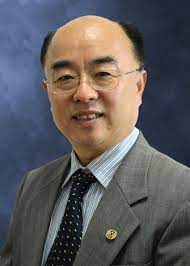
Guanglin LI
Shenzhen Institute of Advanced Technology, Chinese Academy of Sciences
Guanglin Li is a professor in Neural Engineering & Director of the CAS Key Laboratory of Human-Machine Intelligence Synergy Systems, Shenzhen Institutes of Advanced Technology (SIAT), Chinese Academy of Sciences (CAS), Shenzhen, China. His research interests lies in neural engineering, neural rehabilitation engineering, neural-machine interfaces, and biomedical signal processing. He has published more than 80 scientific papers in the internationally renowned journals such as JAMA and IEEE Transactions. He is the senior member of IEEE Society since 2006 and served as an International Advisory Board Member of the Journal of Physiological Measurement, same as an Associate Editor of the IEEE Journal of Biomedical and Health Informatic.

Kang LI
West China Medical Center, Sichuan Medical University
Kang Li received the Ph.D. degree in Mechanical Engineering from University of Illinois at Urbana Champaign, Champaign, IL, USA, in 2009. He is now a full professor of the Biomedical Big Center at West China Hospital and Associate Dean for Research at Sichuan University Pittsburgh Institute (SCUPI). Before joining West China Hospital, He was an associate professor with the Department of Orthopaedics, Rutgers New Jersey Medical School (NJMS) and an assistant professor with Department of Industrial and Systems Engineering, Rutgers University. He serves as an associate editor of IEEE Transactions on Human-Machine Systems and BMC Musculoskeletal Disorders. His research interests include AI in healthcare, musculoskeletal biomechanics, medical imaging, design and biorobotics, and human factors/ergonomics.

Le LI
Northwestern Polytechnical University
Le Li is a professor in institute of medical research, Northwestern Polytechnical University, Xi'an, China.
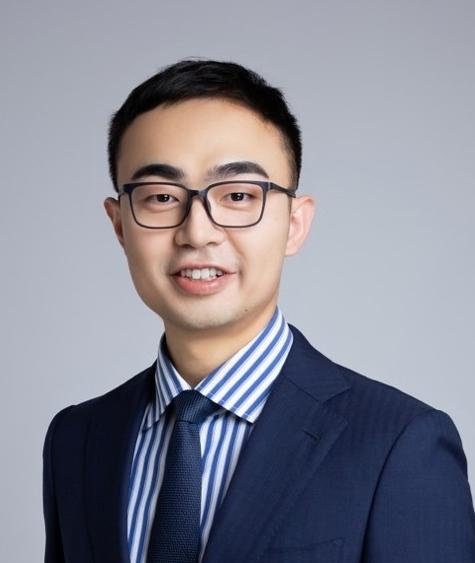
Yuanning LI
ShanghaiTech University
Yuanning Li is an Assistant Professor in the School of Biomedical Engineering at ShanghaiTech University, where he is the principal investigator of the Computational Cognitive and Translational Neuroscience Lab. Before joining ShanghaiTech, he received PhD in the joint Program in Neural Computation and Machine learning at Carnegie Mellon University and was a postdoctoral scholar at University of California, San Francisco, where he worked with Dr. Edward Chang. He is a recipient of the inaugural NIH Outstanding Scholars in Neuroscience Award, and the NSFC Excellent Young Scientists Fund Program (Overseas).
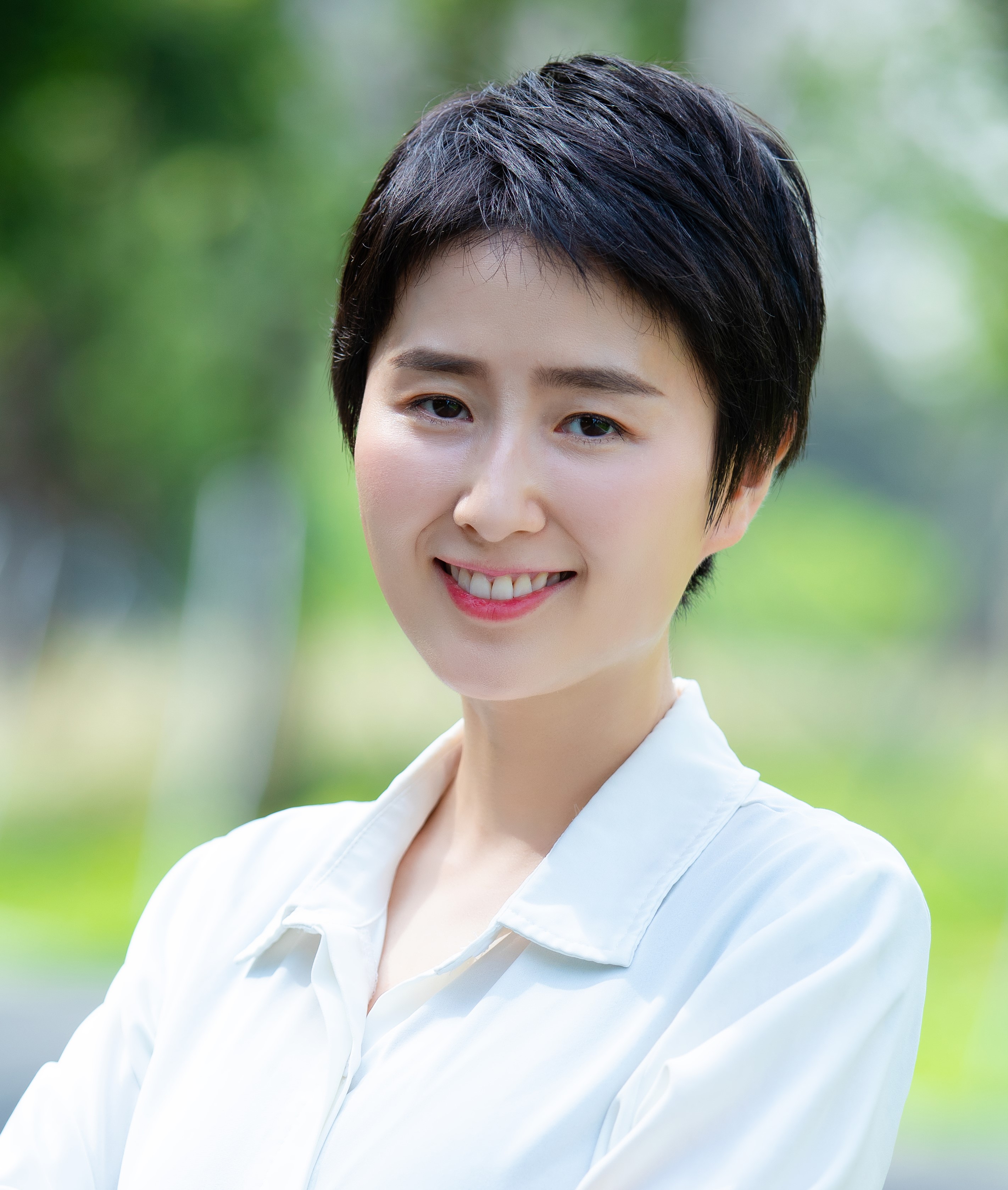
Zhen LIANG
Shenzhen University
Zhen Liang received her Ph.D. degree from The Hong Kong Polytechnic University, Hong Kong, in 2013. From 2012 to 2017, she was an algorithm development scientist at NeuroSky, Inc., Hong Kong. From 2018 to 2019, she was a specially‐appointed assistant professor of Graduate School of Informatics, Kyoto University, Japan. She is currently an associate professor at the School of Biomedical Engineering, Medical School, Shenzhen University, China. Her current research interests include affective brain-computer interface, brain encoding and decoding systems, visual attention, and neural engineering.

Chuang LIN
Dalian Maritime University
Chuang Lin, Professor, Dalian Maritime University, doctoral supervisor, he received the titles includes “Hundred Talents Plan” of Chinese Academy of Sciences (Category B), “the Pearl River Talent Plan” of Guangdong Province, Shenzhen High-Level Overseas talents (Category B), Shenzhen High-Level Professional talents (leading talents), Dalian High-Level talents. He received the bachelor's degree from Northwestern Polytechnical University in July 2001, the master's degree from Harbin Institute of Technology in July 2004, and a doctor's degree from Harbin Institute of Technology in July 2008. He served as Lecturer of Dalian University of Technology from January 2009 to December 2012; From December 2012 to June 2016, he served as a research scientist in the Department of Neurorehabilitation Engineering, School of Medicine, University of Göttingen, Germany, and served as the EU project REMOVE Fellow and collaborated with Professor Dr. Dario Farina; From August 2016 to July 2020, he worked as an Associate Research Fellow at Shenzhen Institute of Advanced Technology,Chinese Academy of Sciences. He has undertaken the Hundred-Talent-plan project of the Chinese Academy of Sciences, one innovation special zone project of the JW Science and Technology Commission, two Key Basic Research projects of the Shenzhen Science and Technology Innovation Commission, a horizontal project and a sub-project of the National Natural Science Commission-Shenzhen Joint Fund. He is the reviewer of More than 10 academic journals including IEEE Trans. On Biomedical Engineering and IEEE Trans. on Neural Systems and Rehabilitation Engineering, he has published over 50 academic papers, including 9 IEEE Trans. papers, applied for/granted over 20 patents.

Honghai LIU
Harbin Institute of Technology, Shenzhen
Honghai Liu is a professor of Harbin Institute of Technology Shenzhen, China. received his Ph.D from King's College, University London, UK. He is a Professor at Haribin Institue of Technology, Shenzhen, China. He previously held research appointments at King’s College London, University of Aberdeen, and project leader appointments in large-scale industrial control and system integration industry. He is interested in sensing and understanding for medical systems and applications with an emphasis on approaches that could make contribution to the intelligent connection of perception to action using contextual information. He has authored/co-authored more than 200 per-reviewed journals and conference papers. He is an IET Fellow and IEEE Fellow.
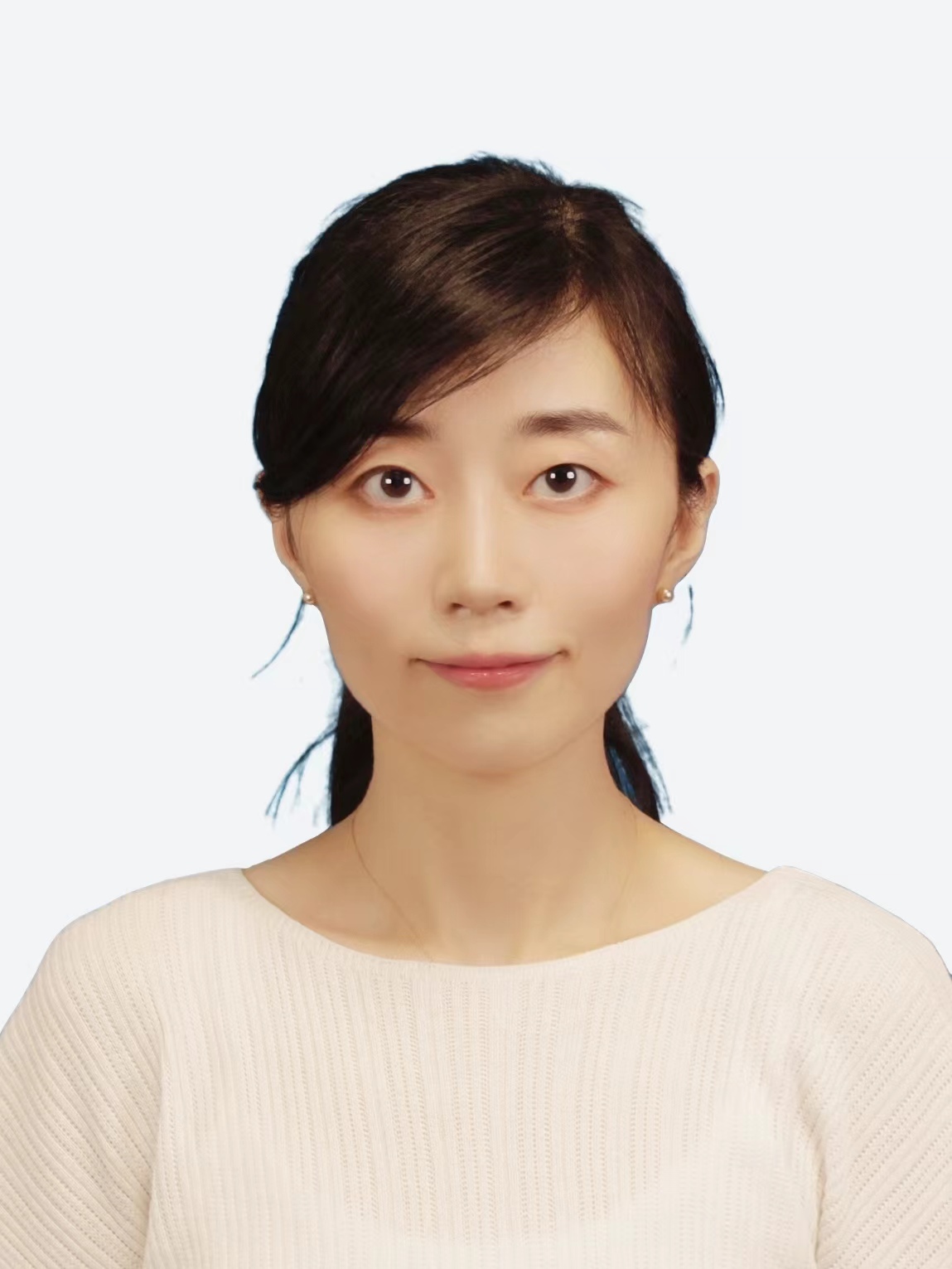
Xiuyun LIU
Tianjin University
Xiuyun Liu, Professor in Biomedical Engineering, Tianjin University, China. She got her PhD in Clinical Neurosciences from University of Cambridge in 2017, after which, she went to University of California, San Francisco (UCSF) to do her first postdoc in Physiological Nursing Department between the year of 2017 and 2019. Then, she joined the Department of Critical Care Medicine and Anesthesiology, Johns Hopkins University to do her research from 2019 to 2021. She joined Tianjin University as a full professor in July, 2021, and she is currently serving as the vice dean of two colleges, i.e. the School of Precision Instrument and Opto-electronics Engineering and the academy of Medical Engineering and Translational Medicine. She is now a member of research committee of the Society of Critical Care Anesthesiologists (SOCCA) in the USA, the vice president of the Life Support Technology Branch of the Chinese Medical Rescue Association, a member of the standing committee of China Anesthesia and Perioperative Medicine Branch, a member of the standing committee of Tianjin Neuroscience Society, and the editorial board member of Military Medical Research.
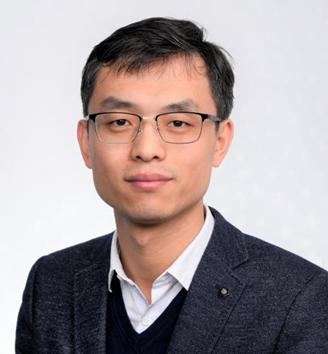
Zhiyuan LIU
Shenzhen Institute of Advanced Technology, Chinese Academy of Sciences
Zhiyuan Liu is currently a professor in Shenzhen Institutes of Advanced Technology, Chinese Academy of Sciences, under the support of National Talents Program. He has continuously focused on the research of bio-interface soft/stretchable electronic devices for almost ten years and is experienced in interdisciplinary bio-medical study. He was awarded Materials Research Society (USA) Graduate Student Award (Gold) in 2018. He published a series of papers on bio-interface soft/stretchable electronic devices in Nature, Nature Electronics, Nature Chemical Biology, Advanced Materials and so forth.
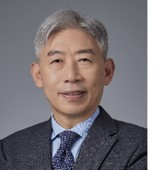
Baoliang LU
Shanghai Jiao Tong University
Bao-Liang Lu received the Ph. D. degree in electrical engineering from Kyoto University, Kyoto, Japan, in 1994. From April 1994 to March 1999, He was a frontier researcher at the Bio-Mimetic Control Research Center, the Institute of Physical and Chemical Research (RIKEN), Japan. From April 1999 to August 2002, he joined the RIKEN Brain Science Institute, Japan, as a research scientist. Since August 2002, he has been a full professor at the Department of Computer Science and Engineering, Shanghai Jiao Tong University, China. He is the directors of the Center for Brain-Like Computing and Machine Intelligence, the Key Laboratory of Shanghai Education Commission Intelligent Interaction and Cognitive Engineering, and Ruijin-Mihoyo Laboratory. His research interests include brain-like computing, deep learning, emotion artificial intelligence, and affective brain-computer interface. He received 2018 IEEE Transactions on Autonomous Mental Development Outstanding Paper Award and 2021 Best of IEEE Transactions on Affective Computing Paper Collection. He was the past President of the Asia Pacific Neural Network Assembly and the general Chair of the 18th International Conference on Neural Information Processing. He is Associate Editors of IEEE Transactions on Cognitive and Developmental Systems, IEEE Transactions on Affective Computing, and Journal of Neural Engineering and the IEEE Fellow.

Jose Del R. MILLAN
The University of Texas at Austin
Dr. José del R. Millán is a professor and holds the Carol Cockrell Curran Endowed Chair in the Department of Electrical and Computer Engineering at The University of Texas at He is also a professor in the Department of Neurology at Dell Medical School and faculty of the Mulva Clinic for the Neurosciences. He is co-director of the UT CARE Initiative and associate director of Texas Robotics. He received a PhD in computer science from the Technical University of Catalonia, Barcelona. Previously, he was a research scientist at the Joint Research Centre of the European Commission in Ispra (Italy) and a senior researcher at the Idiap Research Institute in Martigny (Switzerland). Most recently, he held the Defitech Foundation Chair in Brain-Machine Interface at the École Polytechnique Fédérale de Lausanne in Switzerland (EPFL), where he helped establish the Center for Neuroprosthetics. Dr. Millán has made several seminal contributions to the field of brain-machine interfaces (BMI), especially based on electroencephalogram signals. Most of his achievements revolve around the design of brain-controlled robots. He has received several recognitions for these seminal and pioneering achievements, notably the IEEE-SMC Nobert Wiener Award in 2011, elevation to IEEE Fellow in 2017, and elected Fellow of the International Academy of Medical and Biological Engineering in 2020. In addition to his work on the fundamentals of BMI and design of neuroprosthetics, Dr. Millán is prioritizing the translation of BMI to people who live with motor and cognitive disabilities.

Natalie MRACHACZ-KERSTING
Albert-Ludwigs University of Freiburg
Prof. Dr. Natalie Mrachacz-Kersting member of IEEE, received her Ph.D. degree in biomedical engineering from Aalborg University, in 2005, and currently holds the Chair for Neuroscience and Neuroscience in Sport at the Albert-Ludwigs University of Freiburg. She is the Practitioner Representative for the IEEE Engineering Medicine and Biology Society, Chair of the IEEE WI(BM)E and on the Initiative Steering Committee of the IEEE Brain. She has previously held positions at Aalborg University, Denmark, FH Dortmund and at the University of Auckland, New Zealand. Natalie does research in Medical Technology, Biomedical Engineering and Neuroscience. She has authored over 80 articles in peer-reviewed journals, over 130 conference articles/abstracts, ten book chapters and one book. She is working on several projects specifically within the area of Brain-Computer-Interfaces (BCIs) involving patient populations such as those suffering from stroke or ALS. Dr. Mrachacz-Kersting received several awards including the international BCI award in 2017.

Jose C. PRINCIPE
University of Florida
Jose C. Principe is a Distinguished Professor of Electrical and Computer Engineering at the University of Florida where he teaches advanced signal processing, machine learning and artificial neural networks (ANNs). He is Eckis Professor and the Founder and Director of the University of Florida Computational NeuroEngineering Laboratory (CNEL) www.cnel.ufl.edu. The CNEL Lab innovated signal and pattern recognition principles based on information theoretic criteria, as well as filtering in functional spaces. His secondary area of interest has focused in applications to computational neuroscience, Brain-Machine Interfaces and brain dynamics. Dr. Principe is a Fellow of the IEEE, AIMBE, and IAMBE. He received the Gabor Award, from the INNS, the Career Achievement Award from the IEEE EMBS and the Neural Network Pioneer Award, of the IEEE CIS. He has more than 33 patents awarded over 800 publications in the areas of adaptive signal processing, control of nonlinear dynamical systems, machine learning and neural networks, information theoretic learning, with applications to neurotechnology and brain computer interfaces. He directed 93 Ph.D. dissertations and 65 Master theses. He wrote in 2000 an interactive electronic book entitled “Neural and Adaptive Systems” published by John Wiley and Sons and more recently co-authored several books on “Brain Machine Interface Engineering” Morgan and Claypool, “Information Theoretic Learning”, Springer, “Kernel Adaptive Filtering”, Wiley and “System Parameter Adaption: Information Theoretic Criteria and Algorithms”, Elsevier. He has received four Honorary Doctor Degrees, from Finland, Italy, Brazil and Colombia, and routinely serves in international scientific advisory boards of Universities and Companies. He has received extensive funding from NSF, NIH and DOD (ONR, DARPA, AFOSR).
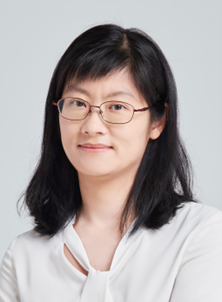
Yu QI
Zhejiang University
Yu Qi is a tenure-track professor at the MOE Frontier Science Center for Brain Science and Brain-machine Integration, Zhejiang University, Hangzhou, China. Her research interests include brain-computer interface, artificial intelligence, and brain-like computing. She aims at constructing neural decoding algorithms and systems for high-performance brain-computer interfaces. She has published more than 30 academic papers and representative studies are published in NeurIPS, ICML, AAAI, IJCAI, TBME, and TNSRE.

Gerwin SCHALK
Tianqiao and Chrissy Chen Institute
Dr. Schalk obtained his M.S. in Electrical Engineering and Computer Science from Graz University of Technology in Austria, his M.S. in Information Technology from Rensselaer Polytechnic Institute (RPI) in Troy, New York, and his Ph.D. in Computer and Systems Engineering from RPI. He is interested in integrating scientific, engineering, and clinical concepts to advance our understanding of the brain and to use this new understanding to develop novel neurotechnologies that improve people's lives.He authored or co-authored >130 peer-reviewed publications, one book and 17 chapters, has >24000 total citations and an H factor of 64, has given more than 230 invited lectures world-wide, and is ranked #23 in neuroscience in China. His work has been extensively showcased by the media including features on CNN, NBC, CBS, Science Channel, and articles in New York Times Magazine, Discover Magazine, Forbes, Technology Review, and Wired. He is also listed in Who's Who in the World and Who's Who in America, and received several awards for his work.

Dong SONG
University of Southern California
Dr. Dong's research interests include nonlinear dynamical modeling of the nervous system, hippocampal memory prosthesis, neural interface technologies, and development of novel modeling strategies incorporating both statistical and mechanistic modeling methods. He invented the multiple-input, multiple-output nonlinear dynamical model of spike transformation that serves as the computational basis of hippocampal memory prostheses. He received the James H. Zumberge Individual Award at USC in 2008, the Outstanding Paper Award of IEEE Transactions on Neural Systems and Rehabilitation Engineering in 2013, and the Society for Brain Mapping and Therapeutics Young Investigator Award in 2018. Dr. Song has published over 180 peer-reviewed journal articles, book chapters, and reviewed conference papers. Dr. Song’s research is supported by DARPA, NSF, and NIH. 2013 IEEE Transactions on Neural Systems and Rehabilitation Engineering Outstanding Paper Award.
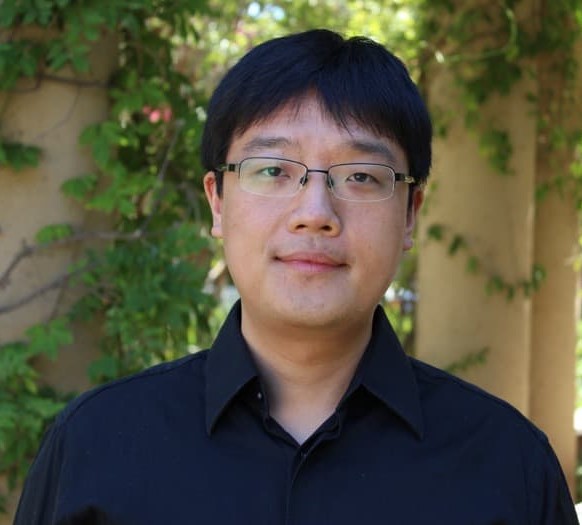
Yanan SUI
Tsinghua University
Yanan Sui, Associate Professor at Tsinghua University, works on reinforcement learning, neural interaction, and robotics. He received his bachelor's degree from Tsinghua University, his Ph.D. from Caltech, and did postdoctoral work at Caltech and Stanford University. His work on safe optimization has been included in textbooks at Stanford and other universities. He received the Best Conference Paper Award and the Best Paper Award on Human-Robot Interaction at the 2020 International Conference on Robotics and Automation for preference-based optimization. His work has been applied to the clinical diagnosis and treatment of neurological diseases and injuries. He has served as area chair of artificial intelligence conferences, including AAAI, AISTATS, ICLR, NeurIPS. For his contribution to the interdisciplinary field of artificial intelligence and neural engineering, he was selected as one of MIT Technology Review's Innovators Under 35 in China.

Hu TAO
Shanghai Institute of Microsystem and Information Technology, Chinese Academy of Sciences
Professor Tiger H. Tao, Deputy Director of Shanghai Institute of Microsystems and Information Technology, Chinese Academy of Sciences, Founding Director of 2020 X-Lab and Deputy Director of State Key Laboratory of Transducer Technology. He has long been engaged in the cross integration research of information technology and life science, and has made a number of innovative achievements in the fields of flexible brain computer interfaces (BCIs), implantable medical sensors and chips, and AI sensors. He has published 80+ papers in Science, Nature, Nature Nanotechnology, PNAS and etc., of which30 have been selected as cover articles, with a total of more than 17000 citations. Tiger is also the co-founder and chief scientist of NeuroXess, a startup company on implantable BCIs.
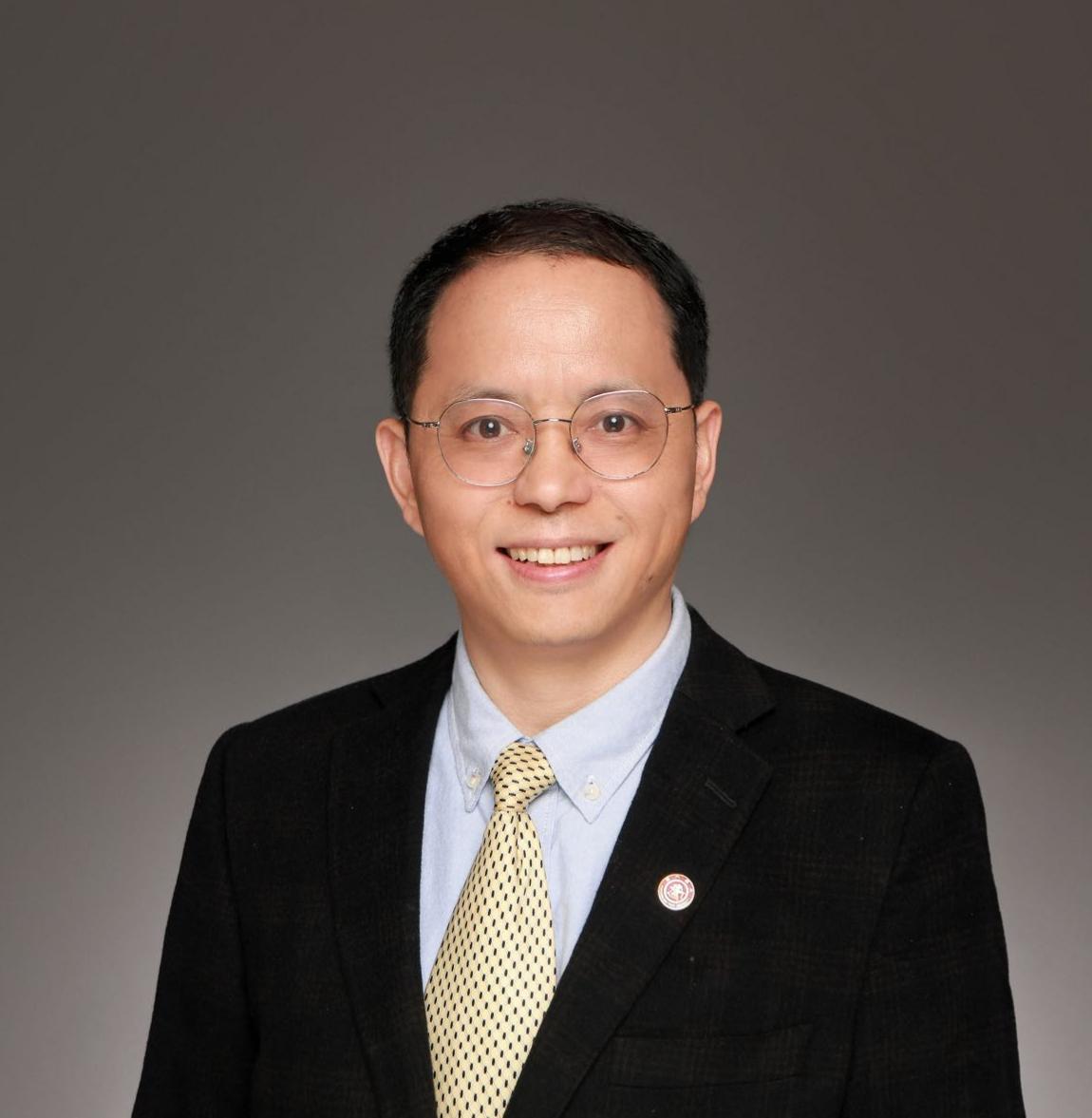
Shanbao TONG
Shanghai Jiao Tong University
Dr. Shanbao Tong is a professor of biomedical engineering in Shanghai Jiao Tong University, China. He holds a Batchelor's degree in radio technology from Xi'an Jiao Tong University in 1995, and a Master‘s degree in turbine machine engineering and a Ph.D. in biomedical engineering from Shanghai Jiao Tong University in 1998 and 2002 respectively. He completed his postdoctoral training in the Johns Hopkins School of Medicine. He is the founding chair of the IEEE EMBS international summer school of neural engineering. Dr. Tong was the associate editor of IEEE Transactions on Biomedical Engineering and IEEE Transactions on Neural Systems and Rehabilitation Engineering. He is currently the Editor in Chief of Medical & Biological Engineering & Computing , Co-Executive editor in Chief of Med-X journal.

Daifa WANG
Beihang University
Wang Daifa, male, doctor, tenured associate professor and doctoral supervisor of the School of Biological and Medical Engineering, Beijing University of Aeronautics and Astronautics.Standing Member of the Second Session of the Brain Function Test and Regulation Rehabilitation Committee, Chinese Association of Rehabilitation Medicine ,CARM. Dr. Wang is a Member of the Rehabilitation Engineering Professional Committee, China Association of Assistive Products (CAAP), and an external Expert of the Center for Medical Device Technology Evaluation, National Pharmaceutical Control Bureau (NPCB). Dr. Wang was a visiting scholar of California Institute of Technology. He specialized in the research on brain function evaluation, neural regulation of cognitive function, neurological rehabilitation and other aspects of cognitive disorder, and the research and development of near-infrared brain function imaging system and brain-computer interface system for a long term. He was nominated for Jiangsu Innovative and Entrepreneurial Talent, the Jiangsu May 4th Youth Medal, and won the honors such as the Young and Middle-aged Expert with Outstanding Contributions in Zhenjiang City, the Top Ten Outstanding Young Persons in Zhenjiang City, and the Top Ten Jinshan Talents in Zhenjiang City. Dr. Wang acted as the project leader of one National Major Scientific Instrument R&D Project, one National Key Research and Development Plan. He also headed the general and youth scholar subjects of National Natural Science Foundation of China, and undertook the national external research funding of more than 10 million. Dr .Wang published about 30 SCI papers and applied for 10 patents for invention.

Yiwen WANG
The Hong Kong University of Science and Technology
Yiwen Wang received the B.S. and M.S. degrees from University of Science and Technology of China (USTC), Hefei, Anhui, China in 2001 and 2004 respectively. She received the Ph.D. degree from University of Florida, Gainesville, FL, USA in 2008. She then joined the Department of Electronics and Computer Engineering as a Research Associate at the Hong Kong University of Science and Technology, Kowloon, Hong Kong. In 2010, she joined as an Associate Professor at Zhejiang University, Hangzhou, China. In 2017, she joined the faculty as an Assistant Professor at Department of Electronic and Computer Engineering, Department of Chemical and Biological Engineering, the Hong Kong University of Science and Technology. Her research interests are in neural decoding of brain-machine interfaces, adaptive signal processing, computational neuroscience, neuromorphic engineering. She serves as the vice chair in the IEEE EMBS Neural Engineering Tech Committee, the editorial board of the Journal of Neural Engineering, the editorial board of Frontiers in Human Neuroscience (Brain-Computer Interfaces), and is an associate editor of the IEEE Transactions on Neural Systems and Rehabilitation Engineering. She holds one US patent and has authored more than 90 peer-reviewed publications.
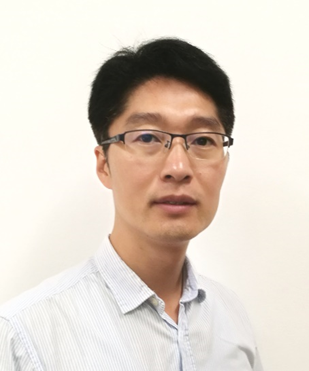
Geng YANG
Zhejiang University
Dr. Geng Yang received the B.Eng. and the M.Sc. degree from Zhejiang University (ZJU), and the Ph.D. degree in Electronic and Computer Systems from the Royal Institute of Technology (KTH), Stockholm, Sweden. Currently, he is a Professor with the School of Mechanical Engineering, ZJU. His research interests include flexible and stretchable electronics, low-power biomedical microsystem, human-robot interface and interaction. He is an Associate Editor of IEEE JOURNAL OF BIOMEDICAL AND HEALTH INFORMATICS (IEEE JBHI), IEEE REVIEW in BIOMEDICAL ENGINEERING (IEEE RBME), and BIO-DESIGN AND MANUFACTURING (BDM).

Yuxiao YANG
Zhejiang University
Yuxiao Yang is an Assistant Professor at the MOE Frontier Science Center for Brain Science and Brain-machine Integration and the State Key Laboratory of Brain-machine Intelligence, Zhejiang University. Prior to joining Zhejiang University, he was an Assistant Professor of Electrical and Computer Engineering (ECE) at the University of Central Florida (UCF) and a postdoc at the University of Southern California (USC). He received a Ph.D. degree in ECE from USC in 2019 and received a B.S. degree in Electronics Engineering from Tsinghua University in 2013. His research centers on designing closed-loop brain-machine interface systems for neural decoding and control, aiming to provide new therapies for neurological and neuropsychiatric disorders. He has published in prestigious neural engineering journals, including cover articles in Nature Biotechnology and Nature Biomedical Engineering. He received the Annual Brain-Computer Interface Award in 2019 and the IEEE EMBS Best Student Paper Award in 2015.

Dezhong YAO
University of Electronic Science and Technology of China
Dezhong Yao born 1965, received PhD in Geophysics (1991) from Chengdu University of Technology, China, and in Biomedical Science and Engineering (2005) from Aalborg University, Danmark. He has been a Faculty Member with University of Electronic Science and Technology of China(UESTC)since 1993; a full Professor since 1995; the start Dean of the School of Life Science and Technology at UESTC(2001-2017). He has been a Visiting Scholar/professor at University of Illinois at Chicago (1997.9-1998.8), McMaster University(2000.11-2001.5), and Aalborg University(2003.11-2004.3). His main interests are brain-apparatus communication(BAC) techniques and their applications in brain disease diagnosis and modulation, and brain-music communication is an example of BAC. He has 300 more journal papers with google scholar citations 16000 and h=66. He is the Fellow of American Institute for Medical and Biological Engineering(AIMBE), the winner of the Roy John Award of the EEG and Clinical Neuroscience Society(ECNS), Chief-editor of “ Brain-apparatus communications”, associate editor of IEEE T-NSRE, and the vice-chairman of the Chinese Society of Biomedical Engineering.
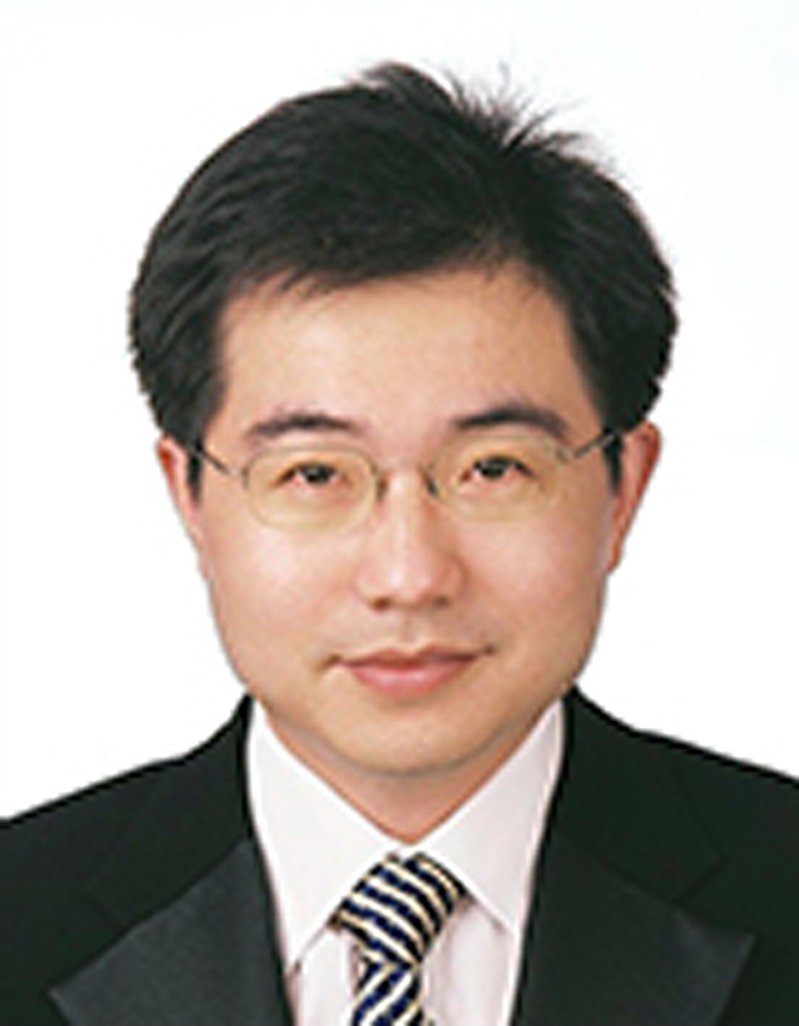
Zhuliang YU
South China University of Technology
Prof. Zhuliang Yu received the B. Eng. and M. Eng. degrees, both in electronic engineering, from the Nanjing University of Aeronautics and Astronautics, China, in 1995 and 1998, respectively, and the Ph.D. degree from Nanyang Technological University, Singapore, in 2006. In 2000, he joined the Center for Signal Processing (CSP), Nanyang Technological University. In 2008, he joined the College of Automation Science and Engineering, South China University of Technology, as an Associate Professor and was promoted to be a full professor in 2010. His research interests include signal processing, machine learning and applications in brain signal processing and brain computer interfaces. He has published more than 150 papers in international journals and conferences. He was the PI of 4 NSFC projects including one Key NSFC project. He is the recipient of the Best Researcher Award of CSP, 2001, and Silver Award of Tan Kah Kee Young Inventor Award, Singapore, 2001.

Guanghui YUE
Kessler Foundation Center for Mobility and Rehabilitation Engineering Research
Dr. Guanghui Yue, Director of the Center for Mobility and Rehabilitation Engineering Research (CMRER) at Kessler Foundation and Kessler Institute for Rehabilitation is also a Professor at the Rutgers University New Jersey Medical School. Before moving to New Jersey, he was the Director of the Rehabilitation Research Division in the Departments of Biomedical Engineering and Rehabilitation Medicine and Director of the Neural Control Laboratory in the Department of Biomedical Engineering at the Cleveland Clinic, Cleveland, Ohio. Prof. Yue has been engaged in clinical application research of neuroscience, motor control, neurorehabilitation, electrophysiology, neuroimaging, biomechanics, and rehabilitation engineering & technology for more than 30 years and has published more than 130 papers in high-impact international SCI journals, with a citation record of near 10,000 times. Under his leadership, the CMRER has grown from one laboratory to eight laboratories, with research funding of more than $40 million (mainly federal government, including NIH, NIDILRR, DOD). Prof. Yue has been a standing a member of the NIH research grant review committees for over 10 years, served as the Chair of several NIH grant review Special Panels, and served as Associate Editor and member of editorial boards of a number of scientific and clinical journals.

Dingguo ZHANG
University of Bath
Dingguo Zhang is the Director of Centre for Autonomous Robotics (CENTAUR), Department of Electronic & Electrical Engineering, University of Bath, UK. His research interests include rehabilitation and assistive robotics, brain-computer interfaces and human-machine interfaces, biomechatronics and neuroprostheses. He serves as an Associate Editor for IEEE Trans. Neural Systems & Rehabilitation Engineering, IEEE Trans. Medical Robotics and Bionics, IEEE Trans. Human-Machine Systems, Scientific Reports, Frontiers in Neuroscience, and Frontiers in Neurorobotics. He is a senior member of IEEE (EMBS, RAS, SMC), and serves in three technical committees (BioRob, TST, BMI) of EMBS and SMC. He was a Board Member of International Society of Functional Electrical Stimulation (IFESS) and a Youth Commission Member of International Society of Bionic Engineering (ISBE). He attracted large grants from the National Natural Science Foundation of China (NSFC) and the Ministry of Science and Technology (MOST) when he worked in Shanghai Jiao Tong University. He has authored over 180 papers, and some were published in top biomedical and robotic journals. He was the winner of the Delsys Prize 2011, and a finalist of BCI Award 2015, 2020, and 2021. He got the Highest Prize of Shanghai Scientific and Technological Progress Award 2019.

Xingang ZHAO
University of Chinese Academy of Sciences
Dr. Xingang Zhao is a Professor in the State Key Laboratory of Robotics, Shenyang Institute of Automation, Chinese Academy of Sciences (SIA-CAS). He has held positions as the Director of the Robotics Research Laboratory at the SIA-CAS, and the Director of the Liaoning Province Key Laboratory of Tri-Co Robot and Medical Equipment. Moreover, he has served as editor for Robot and served member of robotic committee of the China Association for Automation, standing committee member of robot committee of China Mechanical Engineering Society. He was awarded as outstanding member of the Youth Innovation Promotion Association, Young Scholar Award of regional development by the Chinese Academy of Sciences, and the Technical Invention Award of the Chinese Association of Automation. He has held leadership positions at various conferences, such as the Chair of the IEEE CYBER International Conference Program Committee, Workshop Chair of the China Robotics Academic Annual Conference, and Chair of the Special Forum at the China Automation Conference. His current research interests are rehabilitation robot, which combine the robot design, modeling and control, physiological signal processing. Dr. Zhao has received grants from National Natural Sciences Foundation of China and Ministry of Science and Technology of the People’s Republic of China. He has published more than 200 peer reviewed papers.

Xiangyang ZHU
Shanghai Jiao Tong University
Xiangyang Zhu is a professor of Shanghai Jiaotong University.